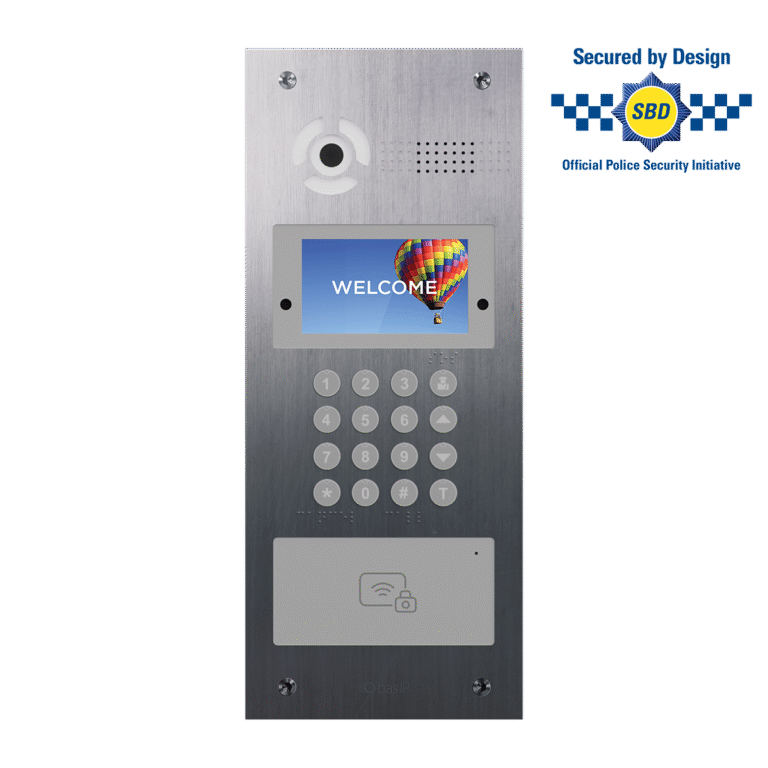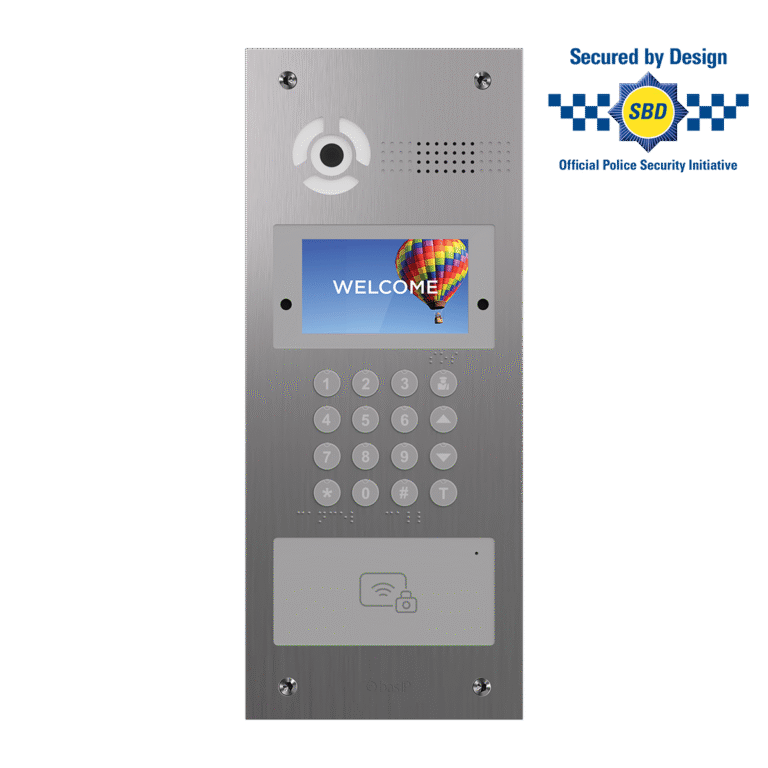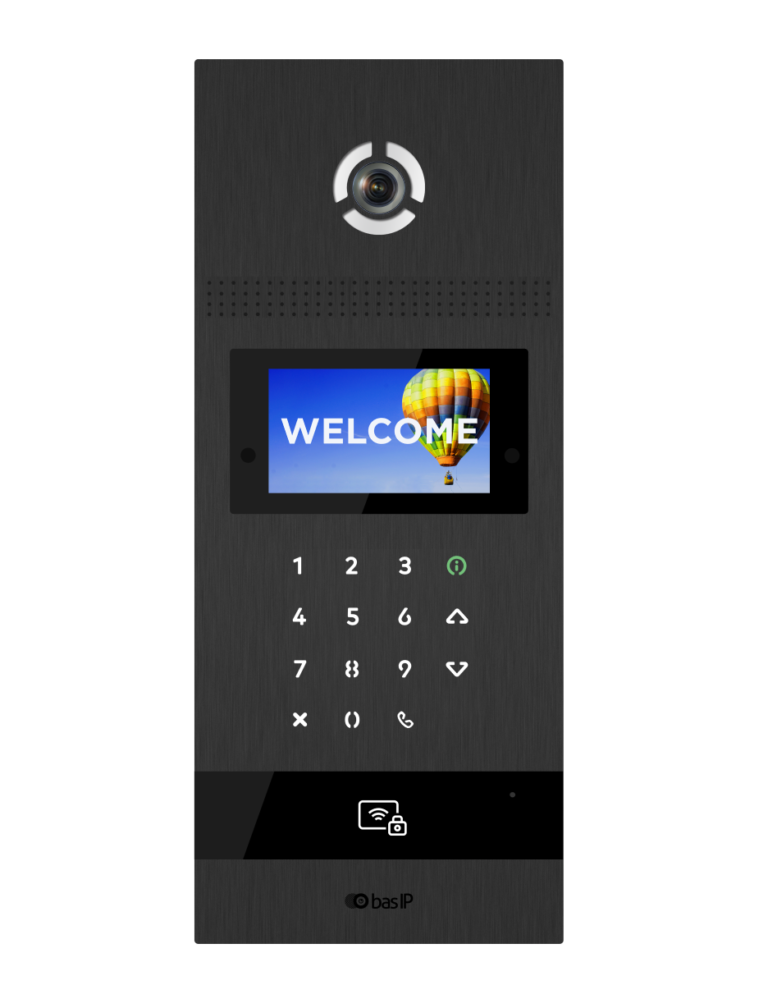Multifamily Door Entry Systems: Unlocking the Secrets
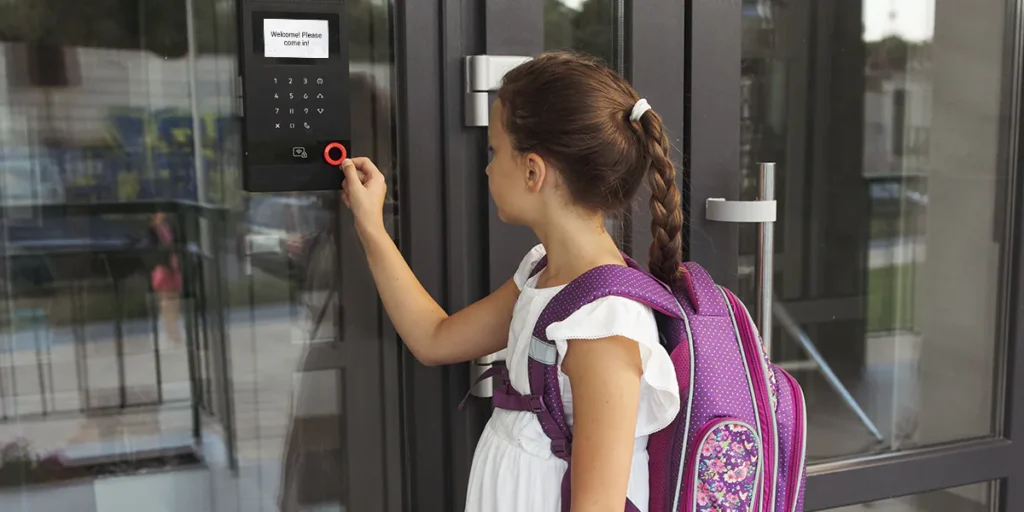
We live in an age where technology continues to evolve, and multifamily door entry systems are no exception. These systems have become increasingly popular in apartment buildings and residential complexes, providing residents with enhanced security and convenience. In this comprehensive article, we’ll dive into the world of multifamily door entry systems, exploring their various features and benefits, and answering some of the most frequently asked questions.
Don’t have the time to read a lengthy article?
No worries! We’ve got you covered with this comprehensive comparison chart that summarizes the advantages and disadvantages of popular door entry systems. Take a quick look and make an informed decision for your property’s security needs!
| Door Entry System Type | Advantages | Disadvantages |
|---|---|---|
| Key Fob System | – Convenient – No need for physical keys – Access can be easily revoked or granted | – Risk of loss or theft – System vulnerabilities – Cost – Technical issues – Key fob management |
| Biometric Access Control System | – Highly secure – No need for physical keys or devices – Unique identification | – Privacy concerns – Cost – False rejections or acceptance – Technical issues – Hygiene concerns (for fingerprint-based systems) |
| Smartphone-Based Entry System | – Convenient – No need for physical keys or fobs – Remote access and monitoring | – Smartphone dependency – Security concerns – Monthly fees – Technical issues – Privacy concerns |
| Real-Time Surveillance | – Enhanced security – Visual verification – Remote monitoring and notifications – Deterrent effect | – Video identification only – Maintenance of cameras and equipment |
| BAS-IP Intercom System | – Seamless integration with multiple entry systems – Enhanced security and convenience features – Modern and innovative – No known disadvantages |
The Evolution of Multifamily Door Entry Systems
A Brief History
Multifamily door entry systems have come a long way since their inception. In the past, traditional key-based systems were the norm, but as technology has advanced, newer and more sophisticated systems have emerged, offering improved security and added features.
The Shift Towards Digital Solutions
The transition from mechanical locks to electronic access control systems has been a game changer. With digital solutions, property managers and residents can enjoy greater control, convenience, and peace of mind.
Types of Multifamily Door Entry Systems
Key Fob Systems
Key fob systems are one of the most popular types of electronic access control systems in use today. These systems utilize a small device, typically attached to a keychain, which can be programmed to grant access to specific doors.

Disadvantages of Key Fob Systems
While key fob systems offer many advantages in terms of convenience and security, there are some potential drawbacks to consider as well:
1. Loss or Theft. One of the primary disadvantages of key fob systems is the risk of losing the key fob or having it stolen. If a key fob is lost or stolen, unauthorized individuals may be able to gain access to the building or restricted areas, compromising security.
2. System Vulnerabilities. Key fob systems rely on electronic communication, which can potentially be intercepted or hacked by malicious actors. Although encryption and other security measures are employed to protect the system, there is always a risk of vulnerabilities being exploited.
3. Technical Issues. As with any electronic system, key fob systems can experience technical issues, such as malfunctioning hardware or software problems. This may result in residents being locked out of their homes or common areas, which can be frustrating and inconvenient.
4. Key Fob Management. Property managers and residents need to keep track of their key fobs and ensure they are properly programmed and updated. This can be time-consuming and may require additional administrative resources.
Keypad Entry Systems
Keypad access control system require users to enter a unique code to gain access to a building or specific areas within it. This type of system is ideal for areas that require controlled access, such as gyms, storage rooms, or parking garages.
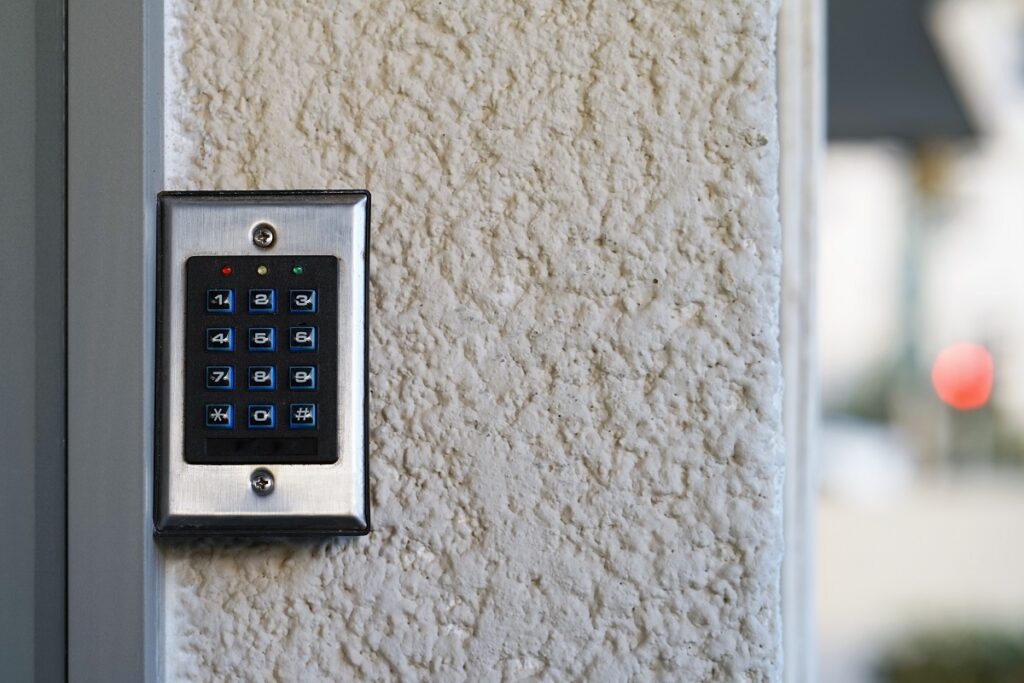
Biometric Access Control Systems
Biometric access control systems use unique physical characteristics, such as fingerprints, facial recognition, or iris scans, to verify the identity of individuals requesting access. This type of system is highly secure, as it is virtually impossible to duplicate biometric data.
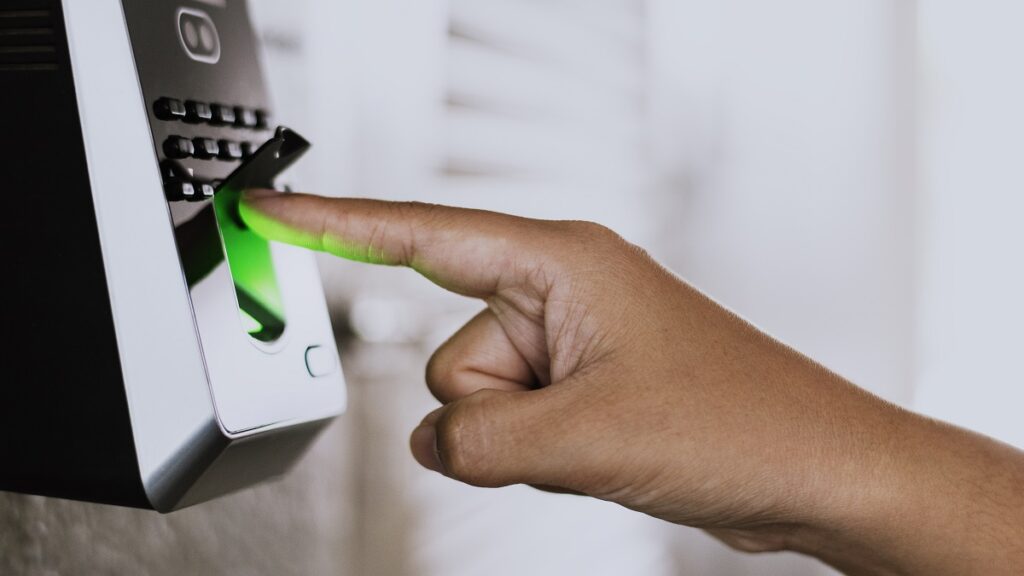
Disadvantages
Despite the many advantages that biometric access control systems offer, there are also some potential drawbacks to consider:
1. Privacy Concerns. Biometric data is inherently personal and sensitive, and its collection and storage can raise privacy concerns among residents or users. Ensuring that biometric data is stored securely and only used for its intended purpose is crucial to addressing these concerns and maintaining trust.
2. Cost. Biometric access control systems can be more expensive than other types of entry systems, both in terms of initial installation and ongoing maintenance. This may make them less suitable for smaller buildings or residential complexes with a limited budget.
3. False Rejections or Acceptance. Although biometric systems are generally very accurate, there is still a possibility of false rejections (denying access to authorized users) or false acceptance (granting access to unauthorized users). Factors such as dirt or debris on a fingerprint scanner or changes in a person’s appearance can affect the system’s ability to accurately recognize individuals.
4. Technical Issues. Like any electronic system, biometric access control systems can experience technical issues, such as hardware malfunctions or software problems. In some cases, these issues may result in residents being locked out or unauthorized individuals gaining access.
5. Hygiene Concerns. In the case of fingerprint-based systems, some users may be concerned about hygiene, particularly in public or high-traffic areas. Touchless biometric systems, such as facial recognition or iris scanning, can help alleviate these concerns.
Smartphone-Based Entry Systems
Smartphone-based entry systems use mobile apps to grant access to residents. With this type of system, residents can use their smartphones to unlock doors, eliminating the need for physical keys or access cards.
Disadvantages
While smartphone-based entry systems offer several advantages, there are also some potential drawbacks to consider:
1. Smartphone Dependency. One of the main disadvantages of smartphone-based entry systems is the reliance on smartphones. Residents who forget their phones or experience technical issues, such as a dead battery or malfunctioning app, may find themselves locked out of their homes or common areas.
2. Security Concerns. Although smartphone-based entry systems employ encryption and other security measures, there is still a risk of hacking or unauthorized access. Malicious actors could potentially exploit vulnerabilities in the system, the app, or the user’s smartphone to gain access to the building.
3. Cost. While the installation costs of smartphone-based entry systems may be lower than those of other electronic access control systems, there could be ongoing costs associated with maintaining the mobile app and keeping it up to date. Additionally, residents may need to upgrade their smartphones periodically to ensure compatibility with the system.
4. Technical Issues. As with any electronic system, smartphone-based entry systems can experience technical issues, such as software bugs or connectivity problems. These issues may result in residents being locked out of their homes or common areas, causing frustration and inconvenience.
5. Privacy Concerns. Some users may be concerned about the privacy implications of using a smartphone-based entry system. For example, the system may require access to the user’s location data or other personal information. Ensuring that the system only collects and uses data for its intended purpose and that this data is stored securely is crucial to addressing these concerns.
Choosing the Best. IP Multifamily Intercom System with All the Features
After analyzing the BAS-IP building intercom solution website page, it is clear that the BAS-IP multifamily intercom system stands out as a modern and innovative multifamily door entry system. This cutting-edge solution effectively combines all possible types of entry systems together, providing a comprehensive and convenient access control experience for residents and property managers.
One of the key strengths of the BAS-IP system is its ability to eliminate the disadvantages of specific door entry systems by leveraging the advantages of others. For example, it seamlessly integrates key fob, keypad, smartphone (iOS and Android), and even biometric access control options, ensuring that users always have a reliable method of entry. This integration addresses concerns such as smartphone dependency, technical issues, or loss of key fobs by offering multiple entry methods.
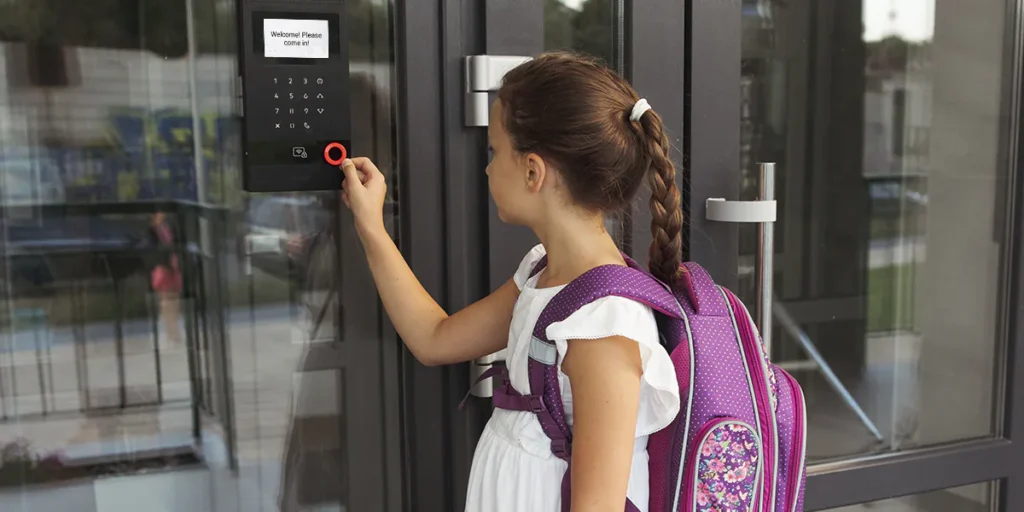

In addition, the BAS-IP system is designed to provide enhanced security and convenience features, such as video intercom capabilities, remote access management, and integration with other smart building solutions. By combining the best aspects of various entry systems and addressing their potential drawbacks, BAS-IP has created a truly innovative and comprehensive multifamily door entry system that meets the needs of modern residential complexes.
Multi-Family Residential Real-Time Surveillance: Another Solution
Adding to the list of door entry systems, multi-family residential real-time surveillance has emerged as an innovative and effective security solution for multifamily buildings. This type of door entry system incorporates live video monitoring and recording capabilities to enhance security and provide an added layer of protection for residents.
How Real-Time Surveillance Enhances Door Entry Systems
Real-time surveillance complements other door entry systems, such as key fob, keypad, smartphone, and biometric access control options, by providing visual verification of individuals entering or exiting the property. This additional layer of security helps prevent unauthorized access and provides property managers and residents with increased peace of mind.
Integration with Existing Systems
One of the strengths of real-time surveillance as a door entry solution is its ability to seamlessly integrate with existing access control systems. By combining video surveillance with other entry methods, the system can verify the identity of individuals and ensure that only authorized users are granted access to the property.
Remote Monitoring and Notifications
Real-time surveillance systems often include remote monitoring capabilities, allowing property managers and residents to view live video feeds from their smartphones, tablets, or computers. This enables them to keep an eye on the property even when they’re away and receive notifications in case of any suspicious activity or security breaches.
Increased Deterrent Effect
The presence of real-time surveillance cameras can act as a powerful deterrent against potential intruders or vandals. When criminals are aware that they are being monitored and recorded, they are less likely to target a property, ultimately enhancing the overall security of the building.
The Benefits of Multifamily Door Entry Systems
Enhanced Security
Multifamily door entry systems provide increased security by allowing only authorized individuals to access the property. This can help prevent unauthorized entry and reduce the risk of crimes such as burglary and vandalism.
Improved Convenience
Residents no longer need to carry around physical keys or access cards, making it easier to manage entry into their homes and common areas.
Customizable Access
Property managers can easily adjust access permissions for residents, staff, and visitors, ensuring that only those with the proper authorization can enter certain areas.
Monitoring and Reporting
Many multifamily door entry systems provide comprehensive reporting and monitoring capabilities, allowing property managers to track and analyze access patterns to identify potential security risks.

